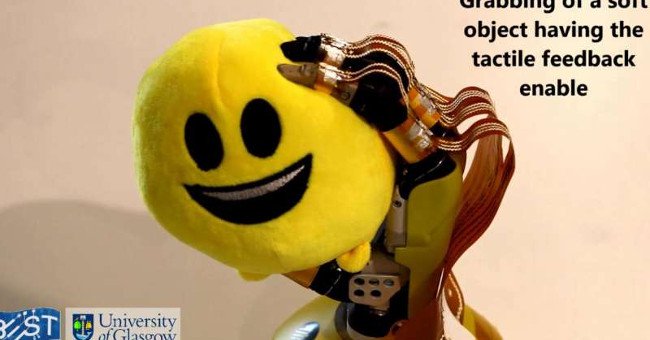Successfully developed electronic skin better than real human skin
Scientists at the University of Glasgow have successfully developed a skin type that helps the robot feel that the object it touches is no different from even a human being with haptic feedback technology. is tactile feedback).
Professor Ravinder Dahiya and his colleagues have created a skin that is able to provide tactile feedback (haptic feedback) to users from silicon and graphene. This layer of electronic skin becomes very "sensitive" when touched because the thin graphene layer acts as a sensor. Extremely flexible graphene and low cost of production.

According to Professor Dahiya, " It is more important, great than human skin. "
One highlight of this electronic skin is that they use solar energy. A solar electric battery receives light just below the invisible electronic skin layer. This manipulator works automatically without the operator.
According to scientists, this type of electronic skin can be used as both prostheses and on robots. When the robot is integrated with this special electronic skin, it will help it get a new emotion that has never been before: lightness. If a robot is able to identify what it is holding is soft, it will be able to adjust itself without being taught.
- 10 robots have succeeded in proving they are new generation animals
- Close-up of the screen coordinates to the charm of the spring-producing robots
You should read it
- ★ How to turn off the vibration effect when pressing keys on Android
- ★ How to turn off feedback inquiry on Windows 10
- ★ Top 5 solar water heaters have very good feedback from customers
- ★ How to add / remove Feedback button in Microsoft Edge Chromium
- ★ How to Solve the Feedback Required Error on Instagram?